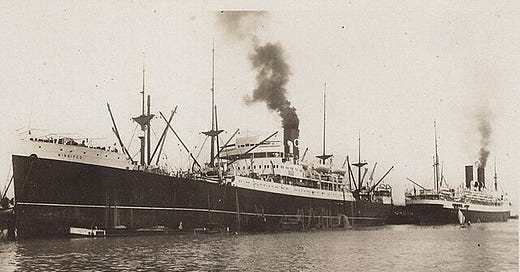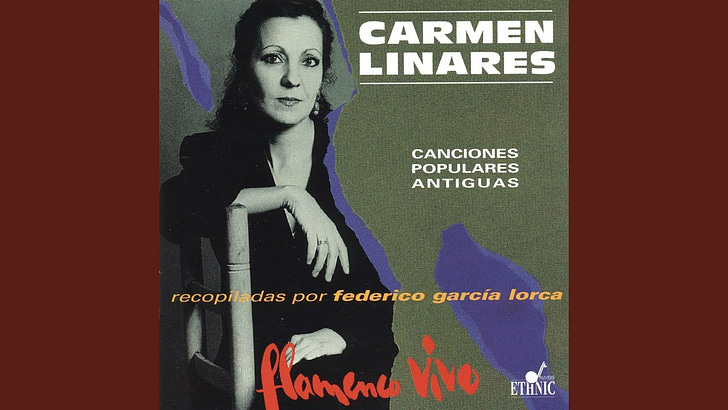Hi all,
Thank you for joining me for today’s song, “Across the Ocean Wide”, by David Rovics (2020). If you’d like to hear the song before you read the background, I’ve included a YouTube video below the article.
Below, you’ll find some background information to the lyrics which are written in italics. Comments and questions are welcome. For Japanese students, vocabulary words in bold are provided in Japanese below.
✳️ Note: The level of this article is for students with a TOEIC of 550+, Eiken Pre-1, CEFR B2. For Japanese students, vocabulary words in bold are provided in Japanese below.
(653 words)
85 years ago…
The song Across the Ocean Wide, by David Rovics, tells the story of a voyage of Spanish refugees in 1939.
Spain came to the end of its civil war in 1939. The Republicans lost the war and, as a result of the dictatorship of General Francisco Franco, many people had to leave their homes and go to other countries for safety. (You can read more about the Spanish Civil War here.)
At first many people fled to France. However, the French authorities put the refugees in camps, and the people lived in difficult conditions.
In Chile, the president, Pedro Aguirre Cerda, wanted to help these Spanish people who had to leave Spain. He asked Pablo Neruda, a famous Chilean poet and Chile’s ambassador to France, to help organize a plan to bring these refugees to Chile. Pablo Neruda chartered a ship called the Winnipeg, which brought more than 2,200 Spanish people to Chile in 1939.
On the ship, there were people from different parts of Spain and also from different groups such as communists, socialists, anarchists, and republicans, but they all believed in helping each other.
Cerda and Neruda faced opposition in Chile. There were people who thought the Spaniards would be “rapists, criminals, anti-Christian agitators whose presence… would be would be ‘incompatible with social tranquillity and the best manners.’” (Dorfman 2018).
In Chile
Many people welcomed the Spanish refugees and helped them. A group called the Chilean Committee for Aid to Spanish Refugees supported the new arrivals. The Spanish people who came on the Winnipeg were highly skilled and became important contributors to Chile’s industries. They worked in publishing, furniture, fishing, science, and food.
Across the ocean wide, where many ships have been
Where many (people) long remember those passengers within (inside the ships)
All of those whose families were buried or in jail
In the killing fields of Spain, when the Winnipeg set sail
Across the ocean wide, across the open seas
A world better than the camps the French authorities
Threw the people in, and if they lived to tell the tale
They’d be the lucky few, when the Winnipeg set sail
Across the ocean wide, the ship was met at bay (at the harbor)
By the throngs of people who just had to come that day
In 1939, to cheer and cry and say, “all hail, Solidarity!”
When the Winnipeg set sail
Humanity fails
Across the ocean wide was where they had to flee
The thousands upon thousands of Spanish refugees
From the lands of Europe, where humanity had failed
To the shores of Valparaiso, when the Winnipeg set sail
Where humanity had failed means, first of all, that the dictatorship hunted down supporters of the Republicans who lost the war. It also means that the refugees received such bad treatment from the French authorities. About 30,000 of those who went to France eventually found themselves in Germany, with roughly 10,000 in Nazi concentration camps in 1940 (Preston, p. 515). Mexico, the Dominican Republic, and the Soviet Union also accepted some of the refugees. The U.S. accepted some well-known intellectuals.
Across the ocean wide was where they would remain
As dictatorship would rule for half a century in Spain
Torpedoed in ’42, now it lies upon the shale
One voyage will outlive her – when the Winnipeg set sail
Across the ocean wide
In October, 1942, a German submarine torpedoed and sank the Winnipeg when the ship was traveling from England to Canada.
Rovics writes, One voyage will outlive her. That voyage was the one that took thousands of people to safety.
In his excellent opinion piece in the New York Times (2018), Dorfman asks:
…those undesirables pose disturbing questions for us, both in Chile and elsewhere. Where are the presidents who welcome destitute refugees with open arms despite the most virulent slander against them? Where are the Nerudas of yesteryear, ready to launch ships like poems to defend the right to happiness?
Grammar point
Safe is the adjective. Safety is the noun. Which one should you use?
We should all practice _______ driving skills.
The refugees escaped to _______.
(Answer at the bottom)
Questions
1) What is one important word you would like to remember from today’s article?
2) Does your country welcome destitute refugees with open arms?
3) Pablo Neruda was a famous poet from Chile. What famous poets are from your country or region?
Vocabulary
refugee 難民
dictatorship 独裁政権
authorities 当局
charter 借り切る
communists 共産主義者
socialists 社会主義者
anarchists むせいふしゅぎしゃ
republicans 共和主義者
agitator 扇動家
incompatible 相容れない
tranquil 平穏
be buried 埋葬される
throngs 群衆
hail 万歳
solidarity 連帯
flee 逃げる
intellectual 知識人
shale 頁岩
outlive 生き残る
pose a question 質問をする
destitute 貧しい
virulent 凶暴
slander 中傷
launch a ship 船を発進させる
SOURCES
Canada’s naval history. https://www.warmuseum.ca/cwm/exhibitions/navy/galery-e.aspx@section=2-E-2-b&id=19&page=0.html Accessed 9 February 2024.
Dorfman, A. (2018, February 21). A lesson on immigration from Pablo Neruda. The New York Times. https://www.nytimes.com/2018/02/21/opinion/pablo-neruda-chile-immigration.html Accessed 9 February 2024.
Preston, P. (2011). The Spanish Holocaust: Inquisition and extermination in twentieth-century Spain. HarperPress.
United States Holocaust Memorial Museum. https://encyclopedia.ushmm.org/content/en/article/spanish-civil-war Accessed 9 February 2024.
. . . . . . . . . . . . . . . .
Learn more about David Rovics at https://www.davidrovics.com/ and https://davidrovics.substack.com
Other songs about the Spanish Civil War
safe (adj.); safety (n.)
We should all practice safe driving skills.
The refugees escaped to safety.











David Rovics has been singing out for justice all around the Left Coast, and Europe, too. As a result he has attracted many enemies who hate what he stands for. Thank you for spotlighting his latest song.
-Jim Smith